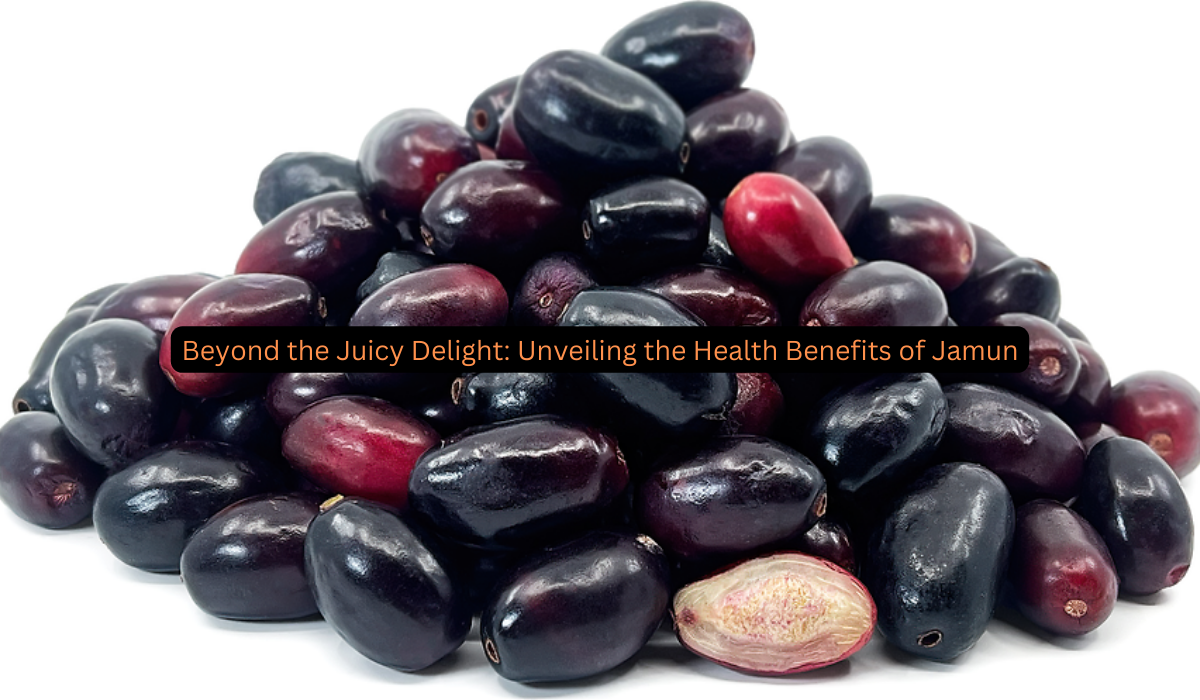Picture this: you’ve savored a slice of refreshing black plum, also known as Jamun. The sweet and slightly tart flavor tantalizes your taste buds, but did you know this seemingly simple fruit packs a powerful punch of potential health benefits? Jamun, a summer staple in India, is more than just a delicious treat. Let’s delve into the world of this vibrant fruit and explore the reasons why you might want to incorporate it into your diet.
A Treasure Trove of Nutrients: Unveiling the Powerhouse Within
Jamun isn’t just about taste; it boasts a surprising array of essential nutrients:
- Vitamin C: A vital antioxidant that strengthens your immune system and fights off free radical damage. Imagine vitamin C as tiny shields protecting your cells from harm.
- Iron: Crucial for red blood cell production and oxygen transport throughout your body. Low iron levels can lead to fatigue.
- Fiber: Promotes gut health, keeps you feeling fuller for longer, and aids digestion. Think of fiber as tiny brooms sweeping your digestive system clean.
- Anthocyanins: These powerful antioxidants contribute to Jamun’s vibrant purple color and might offer anti-inflammatory benefits.
Jamun might be small, but it’s a nutritional powerhouse waiting to be explored!
A Friend for Digestion: Unveiling Jamun’s Digestive Benefits
Jamun isn’t just a delightful snack; it might also be a friend to your digestive system. Here’s how:
- Aiding Digestion: The fiber content in Jamun promotes regular bowel movements and helps maintain a healthy digestive system.
- Soothing the Stomach: Jamun’s astringent properties might help soothe stomach discomfort and alleviate symptoms like diarrhea or indigestion. Imagine it as a gentle calming agent for your digestive system.
If you’re prone to digestive troubles, incorporating Jamun into your diet might be a natural way to find relief.
A Potential Ally for Diabetics: Exploring Jamun’s Blood Sugar Benefits
Early research suggests Jamun might offer potential benefits for those managing diabetes:
- Blood Sugar Management: Studies indicate that Jamun seeds and extracts might have blood sugar-lowering properties. However, more research is needed.
It’s important to consult with your doctor before using Jamun as a complementary therapy for diabetes. It should not be a substitute for prescribed medication.
A Delightful Journey: Exploring Ways to Enjoy Jamun
Now that you know about the potential benefits of Jamun, how can you incorporate it into your diet? Here are some delicious ideas:
- Savoring the Fruit: Enjoy Jamun fresh, biting into its juicy goodness. The sweet and slightly tart flavor is a refreshing summer treat.
- Jamun Powder Power: Dried and powdered Jamun can be added to smoothies, yogurt, or oatmeal for a burst of flavor and a potential nutritional boost.
- Jamun Juice: Enjoy the refreshing taste of Jamun juice, especially during the hot summer months. Remember, moderation is key, as juices can be high in sugar.
- Jamun Delights: Get creative! Explore recipes for jams, jellies, or even ice cream made with Jamun.
There’s a whole world of Jamun-infused delights waiting to be discovered!
A Sweet Conclusion: Why You Should Embrace Jamun
Jamun, with its vibrant color, delightful taste, and potential health benefits, is a fruit worth incorporating into your diet. From potentially aiding digestion to offering antioxidant power, Jamun offers a delightful and potentially beneficial addition to your meals. So, next time you’re at the market, don’t overlook the humble Jamun. Give it a try and discover the world of flavor and potential health benefits this small fruit has to offer!
Frequently Asked Questions
1. Are there any side effects to consuming Jamun?
Jamun is generally safe for most people in moderation. However, some individuals with sensitive digestive systems might experience mild bloating or gas. Start with a small amount and increase gradually to allow your body to adjust.
2. Where can I find Jamun?
Jamun is a seasonal fruit, typically available in the summer months in South Asian countries like India, Pakistan, and Sri Lanka. Depending on your location, you might find it in local grocery stores or farmers’ markets. Dried Jamun powder or commercially prepared Jamun juice might be available throughout the year in some regions.
3. Can I eat Jamun seeds?
Yes, Jamun seeds are considered safe for consumption. In fact, they’re believed to concentrate many of the fruit’s potential health benefits. However, the seeds are quite hard. You can either grind them into a powder for easier consumption or swallow them whole and let them pass through your digestive system. The latter option might not be suitable for everyone, so consult your doctor if you have any concerns.
4. How much Jamun should I consume for potential health benefits?
There’s no one-size-fits-all answer, as the ideal amount can vary depending on individual factors. However, a good starting point might be 1-2 whole Jamuns or 1-2 teaspoons of Jamun powder per day. It’s always best to listen to your body and adjust the quantity based on how you feel.
5. Can Jamun completely replace diabetes medication?
Absolutely not. While Jamun might offer some potential benefits for blood sugar management, it should never be used as a substitute for prescribed medication. Always consult with your doctor before making any changes to your diabetes management plan.

